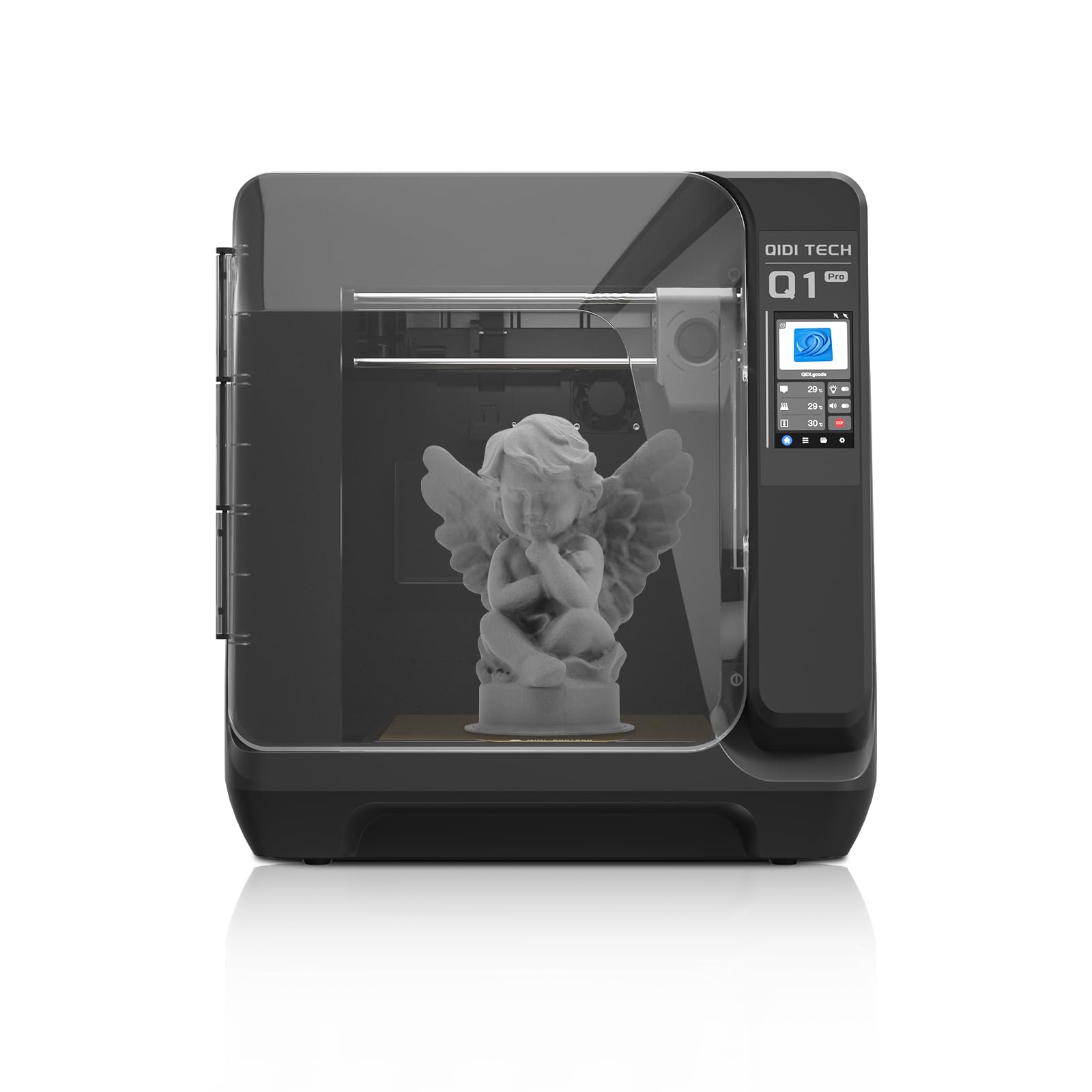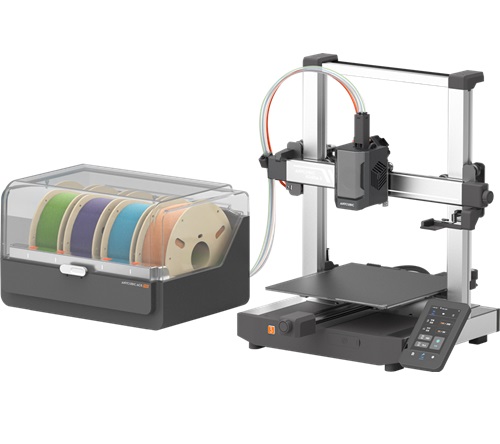Compare Q1 PRO vs Kobra 3 Combo
Comparison between the best 3D printers
Choose the best 3D printer at the best price. The cheapest 3D printers are here.
Buy a 3D printer here with 3D Fila.
 |
 |
|
| Model | Q1 PRO[BUY Q1 PRO] |
Kobra 3 Combo[BUY Kobra 3 Combo] |
| Printing Material | Filament | Filament |
| Buy Filament for QIDI Q1 PRO | Buy Filament forAnycubic Kobra 3 Combo | |
| Estimated price | $449,00 | $349,00 |
| Manufacturer | QIDI | Anycubic |
| Release Year | 2024 | 2024 |
| Print Volume [mm] | 245x245x245 | 250x250x260 |
| Printer Size [mm] | 467x477x489 | 452x504x483 |
| Weight [kg] | 20 | 9,2 |
| Power Loss Recovery | YES | YES |
| Enclosed printer | YES | NO |
| Bed Leveling | Automatic | Automatic |
| Filament End Sensor | YES | YES |
| Bed type | Heated | Heated |
| Power supply system | Direct Drive | Direct Drive |
| Standard nozzle | 0,4 | 0,4 |
| Maximum Nozzle Temperature [°C] | 350 | 300 |
| Maximum Bed Temperature [°C] | 120 | 110 |
| Maximum printing speed [mm/s] | 600 | 600 |
| Filament holder | YES | YES |
| Camera for supervision | YES | YES |
| Recommended filaments | PLA、ABS、ASA、PETG、TPU、PC、PA、PA-CF、PET-CF、PAHT-CF etc. | PLA, PETG, ABS, PP, HIPS |
| Recommended slicers | QIDI Slicer/Cura/Simplify 3D/ORCA/PRUSA Slicer | Anycubic Slicer, Cura, Orca Slicer |
| Maximum Resolution [mm] | 0,1 | 0,1 |
| Processor | Cortex-A53,64-bit Processor | 32 bits |
| Display | Touchscreen 4,3'' | Touchscreen 4,3'' |
| Power Supply | 350 W | 400 W |
| Connectivity | WiFi/USB Flash Drive/Ethernet Cable | USB, Wi-Fi, Cloud |
| Operating systems | Windows, Linux, Macbook | Windows, Linux, Macbook |
| Date of registration in the system | 2024-07-09 | 2024-06-27 |
| Release date | 2024 | 2024 |
| Extra features | The QIDI Q1 Pro 3D printer stands out for its Core XY structure and heating chambers that reach up to 60ºC, ideal for advanced materials such as ABS and Nylon. It features Klipper firmware, an automatic leveling system, a high-flow extruder with a double metal nozzle and a hotend that reaches 350ºC. It offers connectivity via Wi-Fi, USB and Ethernet, as well as a 1080p camera for remote monitoring and an intuitive touchscreen for easy operation. | The Anycubic Kobra 3 Combo offers advanced features, including multi-filament printing with the ACE (Anycubic Color Engine) system, allowing for quick switching of up to four filaments. It features automatic bed leveling, nozzle clogging detection, and integrated filament drying during printing. The printer supports technical materials such as ABS, ASA, Nylon, and PC, thanks to the hotend that reaches 300°C and the heated bed up to 110°C. In addition, it has a 4.3-inch touchscreen and compatibility with various slicers such as Anycubic Slicer, Cura, and Orca Slicer. |
| Support for multiple colors and materials (AMS and CFS) | NO | YES |
Notes * |
||
| Cost-benefit | 8 / 10 | 8 / 10 |
| Hardware | 4.8 / 10 | 4 / 10 |
| Tela | . | . |
| Print volume | 3 / 10 | 4 / 10 |
| Performance | 5 / 10 | 5 / 10 |
| [BUY Q1 PRO] | [BUY Kobra 3 Combo] |
Conclusion |
| In conclusion, both the QIDI Q1 Pro and the Anycubic Kobra 3 Combo are strong contenders in the 3D printer market, each with distinct advantages that cater to different user needs. The QIDI Q1 Pro excels in its build quality and is designed with an enclosed structure, making it particularly suitable for printing with advanced materials like ABS and Nylon. Its higher maximum nozzle and bed temperatures, combined with features like remote monitoring and a robust automatic leveling system, provide users with a high level of control and versatility. Furthermore, the Q1 Pro supports a wide range of filaments, making it a good choice for users who require flexibility in printing materials. On the other hand, the Anycubic Kobra 3 Combo impresses with its innovative multi-filament printing capabilities and automatic features such as clog detection and integrated filament drying. While it offers slightly larger print volume and an easier experience for switching between materials, its open frame design may pose limitations for certain advanced materials. It also has competitive performance ratings, making it suitable for users who prioritize ease of use and color printing. While their prices are similar, potential buyers should consider their specific needs. The QIDI Q1 Pro may appeal more to professional or advanced hobbyists who frequently work with a diverse array of materials, while the Kobra 3 Combo might attract those who are looking for a more user-friendly option with multi-color printing capabilities. In essence, the choice between these two printers will largely depend on the user's intended applications and preferences in 3D printing technology. |

